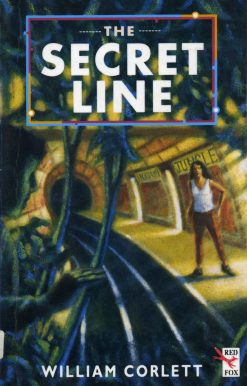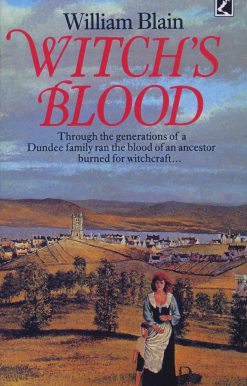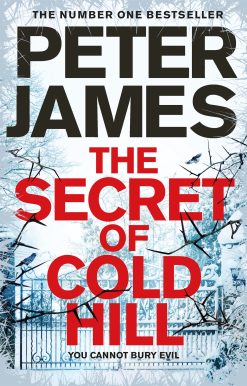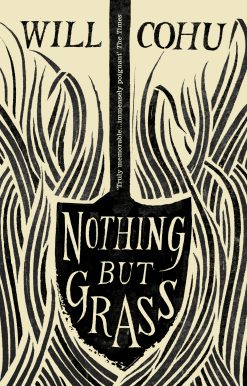Harvest House
| by |
|---|
16.00 JOD
Please allow 2 – 5 weeks for delivery of this item
Description
NSK Neustadt Laureate and New York Times best-selling author Cynthia Leitich Smith delivers a thrilling cross-genre follow-up to the acclaimed Hearts Unbroken.Deftly leading readers to the literary crossroads of contemporary realism and haunting mystery, Cynthia Leitich Smith revisits the world of her American Indian Youth Literature Award winner Hearts Unbroken. Halloween is near, and Hughie Wolfe is volunteering at a new rural attraction: Harvest House. He’s excited to take part in the fun, spooky show—until he learns that an actor playing the vengeful spirit of an “Indian maiden,” a ghost inspired by local legend, will headline. Folklore aside, unusual things have been happening at night at the crossroads near Harvest House. A creepy man is stalking teenage girls and young women, particularly Indigenous women; dogs are fretful and on edge; and wild animals are behaving strangely. While Hughie weighs how and when to speak up about the bigoted legend, he and his friends begin to investigate the crossroads and whether it might be haunted after all. As Moon rises on All Hallow’s Eve, will they be able to protect themselves and their community? Gripping and evocative, Harvest House showcases a versatile storyteller at her spooky, unsettling best.
Additional information
| Weight | 0.41 kg |
|---|---|
| Dimensions | 2.54 × 14.91 × 21.75 cm |
| PubliCanadation City/Country | USA |
| by | |
| Format | Hardback |
| Language | |
| Pages | 320 |
| Publisher | |
| Year Published | 2023-4-11 |
| Imprint | |
| For Ages | 7 |
| ISBN 10 | 153621860X |
| About The Author | Cynthia Leitich Smith is the New York Times best-selling, award-winning author of Hearts Unbroken, the Tantalize series, and the Feral trilogy. An NSK Neustadt Laureate and the author-curator of Heartdrum, a Native-focused imprint at HarperCollins Children’s Books, she was named the inaugural Katherine Paterson Chair on the faculty of the Vermont College of Fine Arts MFA program in Writing for Children and Young Adults. A citizen of the Muscogee Nation, Cynthia Leitich Smith lives in Austin, Texas. |
[Smith] draws on effective examples of microaggressions, bigotry, and exploitation to punctuate her point. But she also includes moments of joy: Hughie speaking to his sister in Mvskoke, the language of his ancestors, and doing seasonal activities with his friends. What results is an atmospheric, transfixing mystery.—Shelf Awareness (starred review)Using short, propulsive chapters, Smith (Hearts Unbroken), a member of the Muscogee Nation, intertwines thoughtful conversation surrounding the racism faced by Indigenous teenagers with a convincing ghost story to craft a spine-tingling, edge-of-the-seat chiller.—Publishers Weekly (starred review)Part coming-of-age tale, part social justice story, and part paranormal thriller. . . . Smith knows what appeals to teens and what makes them tick, and so includes plenty of current teen slang and occasional curse words to keep this story relevant and engaging for them. This is one heckuva roller coaster ride that ratchets up the tension the closer the story comes to Halloween.—School Library Connection (starred review)Superbly highlights and discusses key topics facing contemporary Indigenous youths, including redface and the plights of missing and murdered Indigenous women and two-spirit people. Hughie’s encounters with different types of racism are recognizably authentic, handled with delicacy and distinct realism. . . . An atmospheric novel compellingly interweaving chills and contemporary themes.—Kirkus ReviewsAdeptly centers important conversations about the racism Indigenous youth face; the plight of missing Indigenous women, girls, and two-spirit people; and the lack of police, media, and governmental support in searching for them. This eerie cross-genre novel will entice readers in search of spooky and truthful storytelling.—The Horn BookSmith’s companion novel to Hearts Unbroken (2018) is well-paced and suspenseful, raising thoughtful questions about the intersections of urban legend, cultural trauma, and genre tropes.—BooklistSmith’s genre-bending companion novel to the beloved Hearts Unbroken is a deliciously spooky adventure teen audiences will devour.—BuzzfeedThe spirit of a young indigenous woman is rumored to haunt a crossroads, and who she was and what happened to her – and how the raw injustice of the past can leach its poison into the present – are at the heart of this well-crafted mystery from Cynthia Leitich Smith, a citizen of the Muscogee Nation and the author-curator of Heartdrum, a Native-focused imprint at HarperCollins Children's Books.—The Buffalo NewsCynthia Leitich Smith has written a bunch of books across children’s and young adult, both fantasy and contemporary fiction about Indigenous characters. Harvest House is her first foray into ghosts and murder mysteries, and it did not disappoint. It’s charming and chilling, a story about a haunted crossroads, racist violence perpetrated on Native people, and a group of teens trying to figure out how to get justice in a world designed to sideline them. I hadn’t expected a premise like this from Smith, but she absolutely nailed it.—Tor.comLeitich Smith returns to the world of her award-winning young adult novel, “Hearts Unbroken,” with “Harvest House,” which centers on Hughie, the younger brother of Lou Wolfe from "Hearts." Hughie’s grappling with mysterious goings-on near a Halloween haunted house that plans to use Native stereotypes as the basis for one of its attractions. The Muscogee (Creek) Nation teen’s struggle with why and how to speak up, along with the very real dangers the book explores, make “Harvest House” equal parts thoughtful and thrilling.—The Austin-American Statesman |
|
| Excerpt From Book | CELESTE The Bad Man has many faces, and I remember them all. So how is it that I share my own name with the heavens, my clan’s name with this winter breeze, but I can’t always recall what they are? Tonight, I know I am Celeste, though I am not yet celestial. Wisps of memory taunt me. I can’t be sure, might never be sure, if The Bad Man seeks to kill or if he simply relishes frightening young women—frightening girls really—or if he intends something awful in between. So far, I’ve managed to hold him at bay. But so far doesn’t equal forever. Moon is my trusted lookout. She nudges me awake. His latest prey, yet another girl with dark hair that ripples like ribbons, exits through the front door of the . . . pub, yes, that’s it . . . and walks toward the two-lane country road. This latest girl, she knows to look both ways. Someone who loves her taught her that. Someone who loves her will miss her, mourn her, if I fail. The thought of love uncoils a memory. I left home—home—after high school graduation for a love of books, a love of poetry, for the promise of education, with every intention of returning. Is she seventeen, nineteen? Younger or older than I was then? The girl waits, shifting her weight from one foot to the other, stalled by a passing motorcycle, a passing sedan, a passing pickup truck. She’s stalled long enough that the lurching, desperate shadow of The Bad Man will catch up with her soon. In the gutter atop the empty building on my side of the road, the mourning doves sense my dread and shudder in their cozy nests. Their kin have flown to warmer, brighter skies, but they remain my steadfast companions. I’m grateful, though I long to fly, too. But as long as The Bad Man lurks, another girl may need me. As long as The Bad Man lurks, I will stay. Red dye streaks the girl’s flowing hair. It’s bold. Formidable. She doesn’t know I recognize her, almost recognize her, that I almost recognize myself in her. She doesn’t know I’m her sentry, soldier, sister, salvation. I protect girls like Mother Mourning Dove protects her chicks. Skittish, this girl hesitates at more oncoming headlights. Can she hear him scraping forward? Can she sense the danger that she’s in? I silently urge her, hurry, hurry, hurry, hurry, please. I wish it was autumn, when I can see better, hear better, sometimes speak. Local folks used to tell stories about me. Maybe they still do. Yes, I’m the reason the now-abandoned restaurant closed so abruptly. All that’s left is this boarded-up building, this shell of a structure where birds huddle. Finally, here she comes! Brisk, focused. White shirt, black jeans, black shoes—the employee uniform remains unchanged after all these years. But only a handful of girls fit the description—dark brown hair, deep brown eyes, lovely brown skin—brown and beautiful. I know The Bad Man’s type. She’s shivering. She should cover her head with that red winter scarf, zip up that red winter coat against the dangers of the cold. Ice glistens. Hurry, but watch your step! The streetlight points away from me, toward the road and the pub, for the benefit of passing vehicles and cautious pedestrians. Clouds pass over Moon. Night wraps the girl in its dark blanket. No doubt she helped close the pub. Swept the floors, refilled the salt and pepper shakers, married the barbecue and ketchup and mayo and mustard bottles, wiped down the worn wooden tables and sprawling leather booths. Maybe she got caught up in conversation with the last few customers, made sure no one was driving home drunk. She looks like someone who cares. What did we call the diners—the lovebirds and lost souls and heavy drinkers—who lingered past closing time? Stragglers, campers, lonely hearts? I recall loud laughter and louder music . . . greasy smiles and grabby hands. The revving roar of motorcycles. Faint metallic thuds as car and truck doors shut. No witnesses left tonight except me and the mourning doves. No reason to fret, I thought, she thinks. At this sleepy crossroads between the old town and the new suburb I didn’t live to see, it appears as if nothing much happens—the display of a handmade quilt at the antiques store, a friendly game of pool, the occasional illicit meetup—highlighted by NCAA basketball on mounted TVs. It’s a tidy intersection of rural commerce and cama-raderie on the vanishing prairie. “Less . . . less,” The Bad Man whispers. He’s on my side of the road now. The last thing I said to him was “Hvtvm cehecares.” I warned him—him wearing a rounder face and thinner form, but still and always him—that he wasn’t rid of me, that I would remain vigilant. The girl with red streaks in her hair glances over her shoulder. Does she hear him approaching? She reaches to open the driver’s door of a compact yellow car, rusty around the fenders. A fresh bumper sticker reads CUSTER DIED FOR YOUR SINS. Mother Mourning Dove welcomes my presence, trusts that I won’t stay too long. She doesn’t want to lose her life like I did. “Less . . . less,” The Bad Man hisses. “Less . . .” The voice comes from behind a minivan parked next to the girl. His faded bumper sticker reads SUPER BOWL CHAMPS. I remember place names better than people names. Maybe because people come and go but land endures. This is currently called Kansas, named for the Kaw or the Kanza. The Bad Man is a fan of the Kansas City football team. “Less . . .” The girl’s spine goes stiff, her chin lifts. One hand is on her boxy, beaded leather purse. The fingers of her other hand are threaded with keys like claws. “Who’s there?” He’s gaining on her, his eyes full of blood and stars. “Less . . .” My wings—our wings—rise, dive, our talons strain for his face. Our flock follows, and the girl gasps at the sudden presence of whistling feathers. A word rushes back to me, the memory of my great-grandmother’s voice. Wind recognizes my language, fuels my scream. “Letkv!” The girl’s car door slams shut, its engine fires. Wheels spin, slide across black ice, rush her to safety. She is safe. We have won. The Bad Man will try again. |
Only logged in customers who have purchased this product may leave a review.
Related products
-
On backorder 2-5 Weeks to Arrive
10.99 JOD -
On backorder 2-5 Weeks to Arrive
15.99 JOD -
On backorder 2-5 Weeks to Arrive
20.00 JOD -
On backorder 2-5 Weeks to Arrive
8.99 JOD






Reviews
There are no reviews yet.